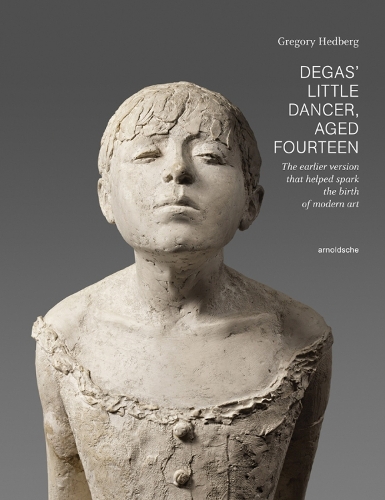
Degas' Little Dancer Aged Fourteen: The earlier version that helped spark the birth of modern art
(Hardback)
Publishing Details
Degas' Little Dancer Aged Fourteen: The earlier version that helped spark the birth of modern art
By (Author) Dr. Gregory Hedberg
Arnoldsche
Arnoldsche
1st December 2016
Germany
Classifications
General
Non Fiction
Individual artists, art monographs
Human figures depicted in the arts
Sculpture
730.92
Physical Properties
Hardback
320
Width 230mm, Height 305mm
2060g
Description
A recently discovered plaster of Little Dancer, Aged Fourteen is critically challenging our understanding of Edgar Degas' most famous work. Documentary and technical evidence confirm that the plaster was cast from Degas' Little Dancer before the wax sculpture was extensively reworked after 1903. The plaster thus records Degas' wax as it appeared when it shocked the Parisian art world at the sixth Impressionist exhibition of 1881. It reveals a far more revolutionary work than the reworked Little Dancer wax and the posthumous Hebrard bronzes we know today. The plaster shows why Joris-Karl Huysmans, in 1881, raved that Degas' Little Dancer was "the only truly modern attempt I know of in sculpture" and why the work left Whistler in a state of near delirium. The plaster reveals Degas at his most innovative by introducing a radical idea of posing a lowly 'opera rat' as a revered figure by giving her an iconic pose, then locking her into a square vitrine, thus emphasising her symmetrical, four-sided stance.It is now clear that in his Little Dancer Degas anticipated radical ideas that came to define key aspects of modern art, dramatically impacting his most noted peers, including Whistler, Manet, Seurat and Sargent. Even twentieth-century masterpieces by Duchamp, Giacometti, Oldenburg, Warhol and Hirst reflect, albeit indirectly, Degas' masterful innovations.
Reviews
In a twist to a longstanding debate that for years has riveted a corner of the art world, one of the leading experts on Degas has decided that a long-disputed plaster of that artist's Little Dancer," which shows the ballerina in a slightly different pose, is indeed an earlier model of his famous 1881 sculpture Petite Danseuse de Quatorze Ans." -- William D. Cohan The New York Times, September 12, 2016
Author Bio
Formerly Curator of Paintings at the Minneapolis Institute of Arts and Chief Curator of the Wadsworth Atheneum, Dr Hedberg is Senior Consultant for European Art at Hirschl & Adler Galleries, New York. He has contributed to numerous academic publications, including A New Look at Degas' Sculpture, Festschrift, in recognition of Professor Colin Eisler of the Institute of Fine Arts, New York University.
